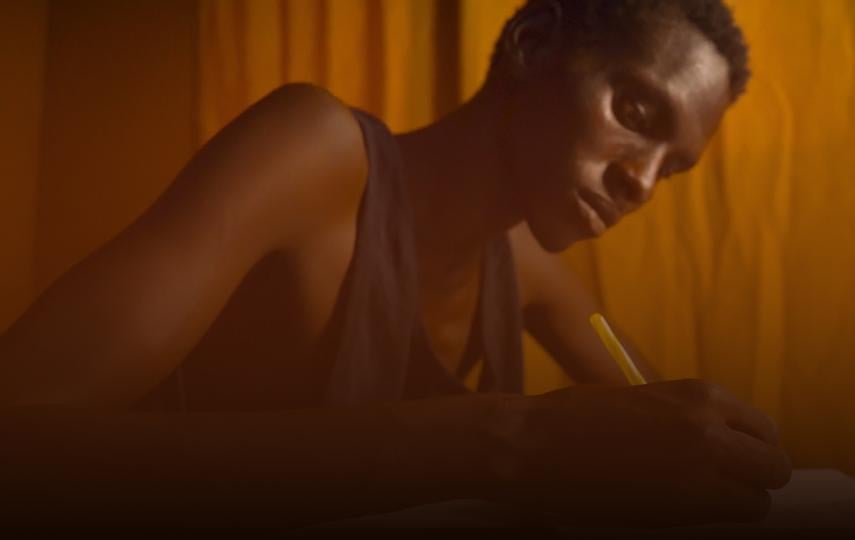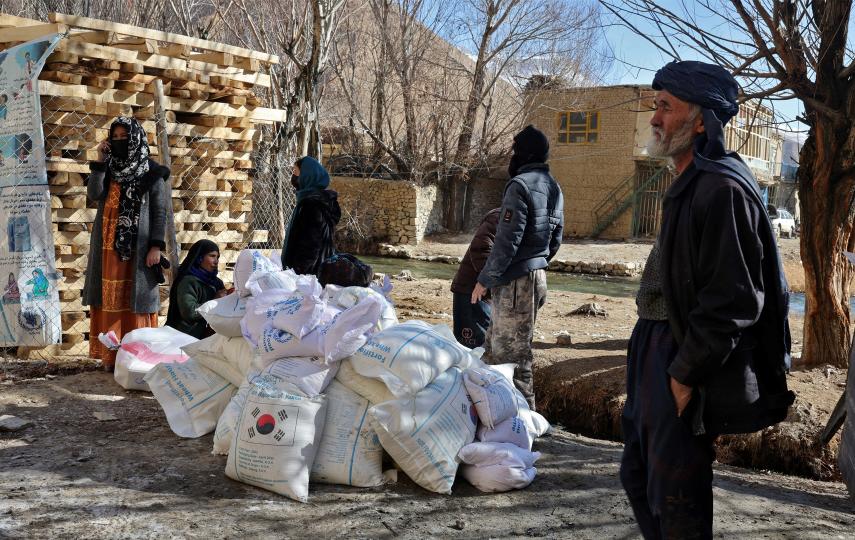Our editors’ weekly take on humanitarian news, trends, and developments from around the globe.
On our radar
Deaths, disappearances, and deportations in the Mediterranean
European migration control policies were highlighted this week by yet another shipwreck, this one resulting in the largest recorded loss of life this year in a single incident in the Central Mediterranean: At least 45 people died when the engine exploded on a boat carrying migrants off the coast of Libya. More than 30 survivors, largely from Senegal, Mali, Chad, and Ghana, were detained in Libya. So far in 2020, at least 497 migrants are known to have died at sea in the Mediterranean. Other boats carrying as many as 91 people have disappeared, but the fate of their passengers remains unknown. Since the coronavirus pandemic began, Italy and Malta have routinely ignored distress calls from boats carrying migrants or allowed vessels to drift for up to two days before initiating a rescue. Last week, Germany prevented two NGO ships from setting sail on a human rights monitoring mission to the Aegean, where Greek authorities have expelled over 1,000 people in recent months by abandoning them at sea at the country’s maritime border with Turkey. Italy has impounded four NGO rescue ships, and the EU-backed Libyan Coast Guard has intercepted over 7,000 people. More than half of those people have disappeared after disembarking in Libya. Following this week’s shipwreck, UN agencies called for European support to the Libyan Coast Guard to be made conditional on the improvement of the human rights situation for asylum seekers and migrants in Libya.
Nigeria ‘tearing apart at the seams’
If the phrase “profound crisis” comes to mind when you think of Nigeria, you’re not alone. In the northeast, the centre of a decade-long jihadist conflict, close to 11 million people need life-saving aid – up 50 percent on last year. Getting assistance to them is now harder than ever: Islamic State in West Africa Province (ISWAP) accuse aid workers of spying and the so-called Islamic State’s magazine has declared them legitimate targets. The military has little control over the countryside. Earlier this month, hundreds of previously displaced civilians were abducted from the town of Kukawa, after being urged by the state government to return. And the violence is spreading. Boko Haram is now active in the already lawless northwest – a new twist to the region’s existing banditry – as well as central Niger State. Al-Qaeda-linked Ansaru – Nigeria’s third jihadist branch – has re-emerged as a threat in northcentral Kaduna State. And there has been a new upsurge in more traditional communal violence in southern Kaduna – with 33 people killed in one incident this month. With the security forces accused of profiting from the mayhem, and the government unable to effectively respond, political scientist Jibrin Ibrahim warns that Nigeria is “tearing apart at the seams”.
‘We want to stay’: Shifting the climate narrative in the Pacific
Kiribati, the low-lying atoll nation in the Pacific, will adapt to rising seas by raising its islands and building adaptable infrastructure, the country’s president said in an interview with The Guardian. Long seen as a poster child for the worst impacts of climate change, Kiribati has pushed a new narrative, one that moves beyond images of vanishing islands and a nation of migrants fleeing climate change. At 2017’s COP climate summit, President Taneti Maamau declared that his country would “put aside the misleading and pessimistic scenario of a sinking… nation”, pledging to fight or adapt. His predecessor, Anote Tong, had grabbed a global spotlight for his climate advocacy, which focussed on helping his nation’s residents migrate on their own terms. Under him, the country bought land in Fiji for possible resettlement, for example. It’s unclear how viable Maamau’s long-term strategy will be. But New Zealand academic Paul Kench, who has studied how island nations can adapt to rising seas (and whom Maamau has recruited as an advisor), said it’s a sign of changing attitudes in countries facing extreme threats: “We don’t want to flee and go somewhere else. We want to stay,” Kench said, describing this shift in an interview with the CBC. “Let's come up with [a] viable adaptation strategy so that we can remain in place and retain our cultural identity.”
Abortion restrictions on US funding open healthcare gaps
The US demands that foreign NGOs it funds must not “perform or actively promote abortion as a method of family planning” in any of their work. When NGOs have refused US aid because of those conditions on abortion, there has been “some impact” on other health care, a recently released review by the US State Department notes. The assessment found that 8 of 1,340 direct awardees (and another 47 sub-grantees) of US funding refused to agree and lost funding opportunities, leading in some cases to interruptions and gaps in services. The Trump administration expanded the policy, closing a loophole that could allow grantees to support like-minded groups. Opponents say the regulation, known as the Mexico City Policy, can deny women and girls sexual and reproductive health choices and hamper other health projects. Under the rule, health workers can't have a full discussion of abortion with patients, the critics say, calling the policy a “global gag rule”.
COVID-19 news
LEBANON: Authorities have announced a new two-week lockdown and nighttime curfew to try to curb the spread of COVID-19, after a spate of new cases followed the explosion that tore through Beirut on 4 August. Post-blast aid and cleanup work are exempt from lockdown restrictions.
SOUTHEAST ASIA: Evidence of the pandemic’s impacts on women and children is mounting, UNICEF reports, as lockdowns keep schools closed and strain domestic situations. The agency said gender-based violence in Myanmar rose by nearly a third in the first quarter of 2020 compared to the previous period. In Thailand, a police taskforce said it had rescued more than 100 children facing online sex abuse – about double the caseload in 2018.
VATICAN: Pope Francis has weighed in on the scramble to develop a COVID-19 vaccine, saying that the poor should be given equal access. “The pandemic has laid bare the difficult situation of the poor, and the great inequality that reigns in the world,” he said Wednesday during his weekly Vatican address. Final “Phase 3” human trials are underway in the UK, Brazil, and South Africa.
VENEZUELA: Venezuelan authorities have detained thousands of people in a “coronavirus crackdown.” Among those detained: people suspected of having come into contact with the virus and doctors and experts who have criticised the policies of Venezuela’s President Nicolás Maduro. Thousands of Venezuelans who have returned home have also been put into containment centres. “This is the only country in the world where having Covid is a crime,” Sergio Hidalgo, a Venezuelan opposition activist, told The New York Times.
In case you missed it
ASIA MONSOON: The damage from an especially severe monsoon season continues to grow in parts of Asia. Bangladesh authorities report more than 220 deaths and 167,000 people still displaced. Floods and landslides in Nepal have killed nearly 200 people, according to the government. And at least 100 people in Pakistan have died during recent flooding, according to the UN.
LEBANON: Fifteen years after the assassination of former Lebanese Prime Minister Rafik Hariri in a massive car bomb attack, the UN-backed and Netherlands-based Special Tribunal for Lebanon found one member of Hezbollah guilty of involvement in the killing and acquitted three other defendants, all of whom were tried in absentia. The court said there was no evidence that Hezbollah or its ally, President Bashar al-Assad’s Syria, were directly implicated in the crime.
MALI: President Ibrahim Boubacar Keïta was forced to resign on Tuesday after soldiers arrested him in a coup that has plunged the West African country, plagued for years by extremist violence, into a new phase of uncertainty. Military leaders ordered a nighttime curfew. Al-Qaeda and so-called Islamic State-linked groups have continued to expand their reach in Mali and the wider Sahel region, triggering record displacement.
NORTH KOREA: “Significant humanitarian needs” are building in North Korea following torrential rains, floods, and a typhoon this month, according to an International Federation of Red Cross and Red Crescent Societies bulletin. But the extent of the damage or aid needs are still unclear, due to strict constraints on humanitarian access. South Korean officials report “historic” rainfall levels, and North Korean state media said a key rice-growing region was particularly hard hit. In an unusually pessimistic assessment this week, state media said the north’s economy was straining under “severe internal and external situations”.
YEMEN: The UN says that nearly a third of its major humanitarian programmes in Yemen have been shut or “drastically reduced” due to a lack of funding, and 20 more programmes face the same fate in the coming months. The UN has received a small fraction of the money it says UN agencies and NGOs need to bring assistance to Yemenis in 2020.
Weekend read
Conflict and coronavirus spark a hunger crisis in Burkina Faso
‘Sometimes the kids say they’re hungry, but I don’t have anything to feed them.’
There should be enough food to go around in Burkina Faso, with production up in recent months. So why are more and more emaciated children and malnourished mothers streaming into local hospitals that are already struggling? A new food security report from the government and UN agencies, shared with The New Humanitarian, may have some answers. Spikes in hunger are common in the country at this time of year – known as the lean season, a time when people rely on crops from the previous harvest to see them through. But increased attacks by extremists and other armed groups have uprooted one million people, robbing families of their livelihoods and leaving crops rotting in fields and granaries. Rising food prices and the economic fallout of coronavirus are compounding the situation. According to the report, the number of people in need of emergency food aid in Burkina Faso is now more than 3.2 million – some 11,000 of whom are suffering from “catastrophe” levels of hunger. “The situation is extremely alarming,” said David Bulman, the World Food Programme’s country representative in Burkina Faso. “It is pushing people to the limit of vulnerability.”
And finally…
UN fails cultural IQ test
The United Nations went ahead with a survey on racism that was probably racist — even though staff had warned against its release. A group of UN staff associations – quasi-unions – this week wrote to the UN chief of their “dismay” that their feedback on the preparation of the UN Survey on Racism hadn’t been addressed.
The online questionnaire, sent to staff on 19 August, started by asking respondents to choose from the following categories to describe their race: black, brown, white, yellow, mixed/multi-racial, or “Any Other”. The term, “yellow”, generally regarded as a slur, is sometimes used to refer to people of Asian origin.
One UN official of Asian heritage, who requested anonymity due to the sensitive issues raised, told TNH it was “unfreakingbelievable” and said they had complained about the shock and offence caused. Screenshots obtained by TNH show the survey was handled by CultureIQ, a New York-based company that has previously done business with the UN. The company did not respond to multiple requests for comment by TNH.
UN spokesperson Stephane Dujarric did not answer emailed questions about the contractor and who in the UN made the decisions, but said “the survey has [been] taken off-line and revised appropriately, taking into account the legitimate concerns... we acknowledge the need to formulate these categories with greater sensitivity.”
il-as-bp-oa-pd-er-kp/js




